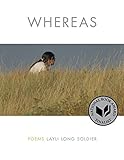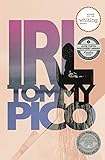Here are six notable books of poetry publishing in July.
A Memory of the Future by Elizabeth Spires
A book worthy of pondering—“how to find myself / when a self is so small”—Spires offers so many questions and considerations, yet they all return to our fleeting existences. “If my heart were scoured, / if my soul were remade / into a new and shining garment, / then would I have to die? // Lord, if perfection is death, / let me stay here / a little while longer, / spotted and stained.” In “The Road”: “A life: pared to the bone / Think of a room with no / chair, no bed.” Spires puts us in these monastic spaces where, like her narrator, we “sit on a black square / in a patch of light. / In my mind, I sit there.” When we sit inside ourselves, soon we sit everywhere, including out on the road. Spires’s narrator sees where “a few souls, gray as time, / stand in a patch of shade, / their arms held out.” There’s a need for poetry that is intensely, perhaps even messily, invested in the present moment as it unfolds; there’s also a need for poetry that feels transcendent, inward. There’s health in that for the reader, for the writer. “As one grows older, / there should be fewer / and fewer words to say,” Spires writes. This is a book of listening and contemplation. It does not ignore the outside world, but it gives readers a way to survive it. Poems like “Small as a Seed”—an appropriately Franciscan structured work from a poet raised Catholic—are welcome salves: “In everything, its opposite. / In terror, calm. / In joy, attendant sorrow. / In the sun’s ascendancy, its downfall. / In darkness, light not yet apprehended. // At night in bed, I fear the falling off. / Though falling, I will rise. / I fear. Fall arriving now. / In any word so small, the world. / In the world I walk in, a wild wood.”
 New Poets of Native Nations, edited by Heid E. Erdrich
New Poets of Native Nations, edited by Heid E. Erdrich
In her introduction to this important volume, Erdrich quotes Dean Rader’s observation that “a comprehensive anthology of Indigenous American poetry has not been published since 1988.” Erdrich reminds us that in addition to this critical absence, there has also been erasure—“Native American-themed poetry by non-Natives” has “overwritten our identities in ways that confuse young people who are already at risk and struggling to forge an identity.” A small sampling of the excellent work here: Tacey M. Atsitty’s “Hole Through the Rock”: “But within my whorl, you are winged: doubled and pure, / like the coupling of pebbles in storm water. These enduring // glances from wind on pane say you can see plainly the part / of me you miss.”  Selections from Layli Long Soldier’s moving collection, WHEREAS.
Selections from Layli Long Soldier’s moving collection, WHEREAS.  From Tommy Pico’s IRL: “I / don’t have the option / of keeping my God / alive by keeping her name / secret b/c the word for her / is gone.” Craig Santos Perez’s masterful ruptures of language in “(First Trimester),” where the narrator’s partner feels their child’s first kick, that “embryo / of hope.” They think about fragments and pieces, organic and otherwise: “they say plastic is the perfect creation / because it never dies.” He thinks: “i wish my daughter was made // of plastic so that she will survive [our] wasteful / hands.” And then there’s Natalie Diaz, who will stop you, sit you right up: “Native Americans make up less than / one percent of the population of America. / 0.8 percent of 100 percent. / O, mine efficient country.”
From Tommy Pico’s IRL: “I / don’t have the option / of keeping my God / alive by keeping her name / secret b/c the word for her / is gone.” Craig Santos Perez’s masterful ruptures of language in “(First Trimester),” where the narrator’s partner feels their child’s first kick, that “embryo / of hope.” They think about fragments and pieces, organic and otherwise: “they say plastic is the perfect creation / because it never dies.” He thinks: “i wish my daughter was made // of plastic so that she will survive [our] wasteful / hands.” And then there’s Natalie Diaz, who will stop you, sit you right up: “Native Americans make up less than / one percent of the population of America. / 0.8 percent of 100 percent. / O, mine efficient country.”
 Smudgy and Lossy by John Myers
Smudgy and Lossy by John Myers
This debut by Myers unfolds as if it is in a Samuel Palmer painting: a moonlit field, blurry and dizzy at the right moments. Smudgy and Lossy, the two main characters in the book, are friends and lovers. They sometimes seem to have bodies; elsewhere, they drift through the book as referents. There’s a mystical, wondrous touch to Myers’s verse: “In the house I grew up in I always drew / where the windows were in the walls // because I didn’t trust that I would be / otherwise held.” In this pastoral world, dreams and reality share borders and sometimes overlap. “A butterfly found cold, its wings caked into the dirt” and “Lossy’s never bored watching mail carriers, their feet in the rain”—such lines are offered to the reader like passing thoughts. He often returns to the relationship between Smudgy and Lossy: “Sound requires a medium. / I put my back to you to / resonate and I can’t tell, does / this apply? You are hardly / affected no matter where / we share a tether.” His poems surprise us: They capture a world we’ve seen yet slightly transformed: “The light on the curve of one’s wrist like a nest of velvet ants.”
 The Galloping Hour: French Poems by Alejandra Pizarnik (translated by Patricio Ferrari and Forrest Gander)
The Galloping Hour: French Poems by Alejandra Pizarnik (translated by Patricio Ferrari and Forrest Gander)
These are the first English translations of Pizarnik’s French poems, written from 1960-1964 and from 1970-1971. The collection includes images of her draft pages, now held at Princeton. Enrique Vila-Matas has written of how Pizarnik “liked illusory or artful nights,” and those incantatory rhythms particularly fuel these poems. “All night I hear the voice of someone seeking me. All night you abandon me slowly.” In the night, “Silence is temptation and promise.” The narrator is plagued by her longing; “I check the wind for you. You’re not a cry. But I check the wind for you.” To read Pizarnik is to inhabit her melancholic world, a world of recursive, enabling lines, where “my language is the priestess.”
 Trickster Feminism by Anne Waldman
Trickster Feminism by Anne Waldman
“I am a poet, bard, scop, minnesinger, trobairitz who is driven by sound and the possibilities for vocal expression, the mouthing of text as well as intentionality or dance on the page.” Waldman has always been interested in the poetry of performance, but never purely in artifice: “There’s a numbness in our culture to the continuing horrors of genocide…How, as a poet, do you take that on? How can the outrage really penetrate you into a state of compassion?” Trickster Feminism answers that question through a series of prose poems, litanies, and meditations; “what does the trickster say / kinetic or / clown / or / hiding so as in retreat”—for Waldman, the trickster is among us, sometimes within us. “Resistance. Had to resist. Ward off. Deflect. Exorcise. Defy. Apotropaic experiments to shift tone & anger.” This book is a call: “Take back founding myth of Americas: evil of the Feminine.” “This is a whisper,” Waldman writes, “enough of whisper to / rise up rise up and wiser, streets of the world.”
 Purgatorio translated by W.S. Merwin
Purgatorio translated by W.S. Merwin
 “I am invisible I am untouchable / and empty / nomad live with me / be my eyes / my tongue and my hands / my sleep and my rising / out of chaos / come and be given.” Those lines from The Essential W.S. Merwin arose while reading his translation of Dante’s masterwork. “The poem that survives the receding particulars of a given age and place soon becomes a shifting kaleidoscope of perceptions, each of them in turn provisional and subject to time and change,” Merwin writes in the foreword. He is in awe of Dante, and humbled by this assignment—a worthy caretaker. Merwin reminds us that out of Dante’s three sections, “only Purgatory happens on the earth, as our lives do, with our feet on the ground, crossing a beach, climbing a mountain.” It is also the realm of hope “as it is experienced nowhere else in the poem, for there is none in Hell, and Paradise is fulfillment itself.” The tactile, raw nature of our visceral world, and the longing for something more: a poetic duality that Merwin captures in each canto. “When we had come to a place where the dew / fends off the sun, there where it dries / hardly at all because of the sea breeze // my master spread out both his hands and laid them / gently upon the grass, and I who / understood what he intended to do // leaned toward him my cheeks with their tear stains / and he made visible once again / all that color of mind which Hell had hidden.” In Merwin’s Purgatorio, the mire of Hell is never far away—but neither is the salvation of Paradise.
“I am invisible I am untouchable / and empty / nomad live with me / be my eyes / my tongue and my hands / my sleep and my rising / out of chaos / come and be given.” Those lines from The Essential W.S. Merwin arose while reading his translation of Dante’s masterwork. “The poem that survives the receding particulars of a given age and place soon becomes a shifting kaleidoscope of perceptions, each of them in turn provisional and subject to time and change,” Merwin writes in the foreword. He is in awe of Dante, and humbled by this assignment—a worthy caretaker. Merwin reminds us that out of Dante’s three sections, “only Purgatory happens on the earth, as our lives do, with our feet on the ground, crossing a beach, climbing a mountain.” It is also the realm of hope “as it is experienced nowhere else in the poem, for there is none in Hell, and Paradise is fulfillment itself.” The tactile, raw nature of our visceral world, and the longing for something more: a poetic duality that Merwin captures in each canto. “When we had come to a place where the dew / fends off the sun, there where it dries / hardly at all because of the sea breeze // my master spread out both his hands and laid them / gently upon the grass, and I who / understood what he intended to do // leaned toward him my cheeks with their tear stains / and he made visible once again / all that color of mind which Hell had hidden.” In Merwin’s Purgatorio, the mire of Hell is never far away—but neither is the salvation of Paradise.










